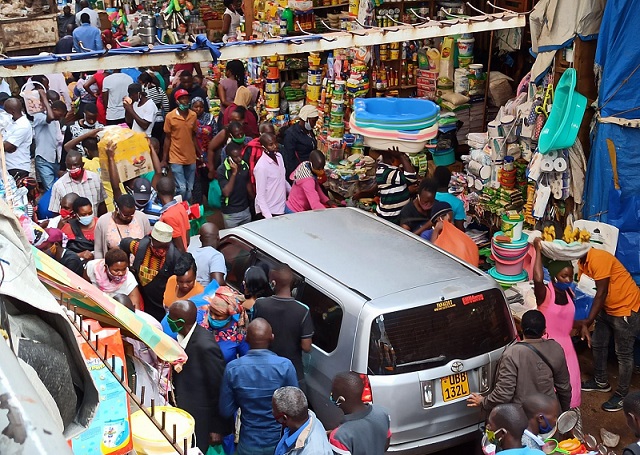
Kampala, Uganda | THE INDEPENDENT | Experts have said that Ugandans not being afraid of the coronavirus (COVID-19) is driving the high levels of complacency seen in many communities in the country.
The experts say lack of fear for the disease has led many people who were previously scared of the disease to abandon wearing masks, washing hands and enter into gatherings.
While Uganda is being hailed by the international community for the way it has handled COVID-19 and been able to prevent any deaths from occurring, health experts say that many people are not scared of the disease because it does not kill.
Dr. Joseph Matovu, a behavior change specialist says that Ugandans are not scared of the disease. He says that many people think the disease is foreign and cannot affect them.
A study carried out in March 2020 when Uganda had less than 20 cases of the disease showed that the level of fear at the time of COVID-19 was as high as 80 percent in some communities. In June, 2020 with over 700 cases of the disease reported, the level of fear of the disease has gone down in some communities to as low as 20 percent. Preventive measures such as hand washing that stood were practiced by 80 percent of the population in April but have now gone down to 56 percent as of June.
Dr. Matovu says people are no longer scared because they have a low risk perception of the disease. He attributes this to the high recovery rate of the disease, a lack of a fatality and a lack of trust of government as the reason that many people have decided not to listen to what they are being told about the disease.
Similarly, Prof Freddie Ssengooba, a public health specialist says that Ugandans are no longer scared of the disease due to confused messaging. He says the ever changing facts about the disease leave many people confused which creates mistrust.
Dr. Paul Nyende, a psychiatrist at Makerere University says it is human nature to protect themselves from something that they fear. He says for Ugandans to adhere to preventive measures, they need to be scared of the outcome of the disease. Right now, they are not.
“People are often scared of being burnt by fire. This is why we say people use kitchen mittens or clothes to carry saucepans off fire. They are scared of being burnt and protect themselves. In this case people are not wearing masks or avoiding crowds because they are not scared. Their brains do not comprehend the effect of exposing themselves,” he said.
At the height of the HIV epidemic in the 90s, Dr. Matovu says that fear of the epidemic helped control the spread of the disease. Through the use of skulls, skeletons and very small slim often dark skinned people to give a picture of what people with the virus look like, Ugandans took precaution to protect themselves from the disease.
In comparison with COVID-19, he says government has failed to create fear in the public. “Government has failed to properly communicate to the public about the threat of COVID-19. There are so many unanswered questions that create doubt among the public. There has been poor risk communication,”he said.
He suggests that government explains the disease to the people rather than use security operatives to implement preventive measures such as wearing masks.
A 2015 research carried out by psychologists in the US to determine the role that fear played in the response to the 10 Ebola cases detected in 2014 in the country showed that fear can lead to extreme reactions like parents taking children out of schools even when they are not at risk. The study recommended that governments carefully chose what kind of information they want to release about a disease to avoid audiences from becoming scared or confused to the extent that they either over react or under react which might present more harm instead.
However, according to some health experts, with the presence of social media, controlling the narrative in disease outbreaks is hard. A few weeks ago, a video showing recovered patients dancing on award circulated on social media. According to health experts, when such videos circulate, they do more harm than good.
Dr. Monica Musenero, an epidemiologist and also a presidential supervisor on epidemics says that the videos circulating on social media confuse people about the virus. She says the videos are a mockery of the health system.
******
URN
 The Independent Uganda: You get the Truth we Pay the Price
The Independent Uganda: You get the Truth we Pay the Price



